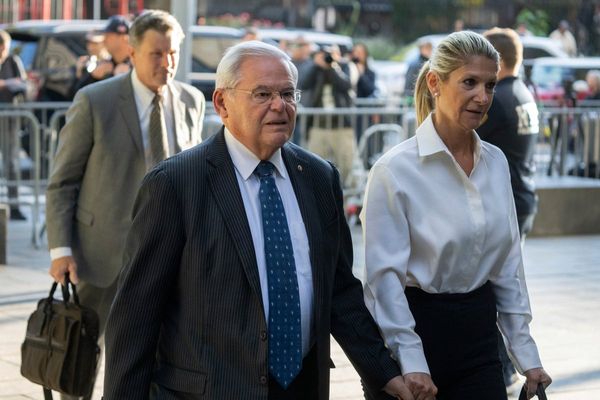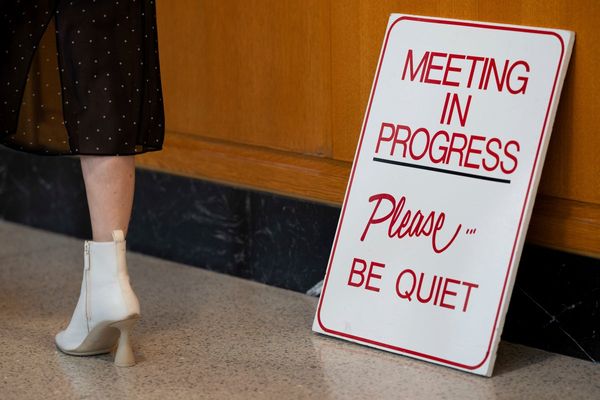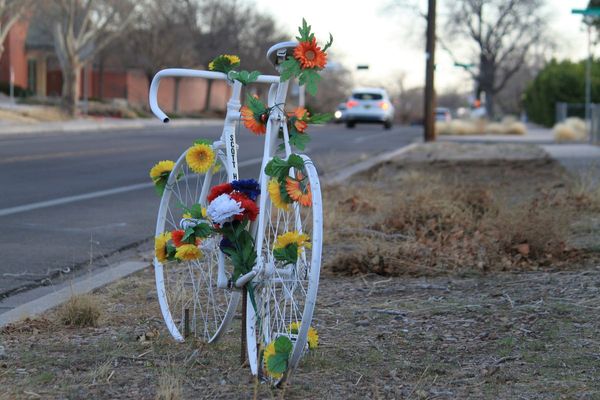
If New York is a city of dreams, Anna Sorokin had plenty of them.
Sorokin, a Russian immigrant from a middle-class family, longed to be a member of the upper echelon of Manhattan society. She elbowed her way into the city’s bustling social scene and tried to raise money to open a members-only arts club on Park Avenue South.
To friends and those wanting to do business with her, there was no reason to believe she was not who she said she was – a wealthy German heiress with a world news taste for the high life.
For years, she had played the part, and looked it, too.
She wore the latest designer clothes – Gucci and Yves Saint Laurent – and moved from one boutique hotel to the next.
She doled out hundred dollar tips, treated friends to expensive meals and chartered a private plane to Omaha, Nebraska, for the Berkshire Hathaway Conference.
But prosecutors in Manhattan said it was all a lie.
Sorokin, they said, swindled $275,000 (£213,000) from the rich and the unsuspecting – including friends and financial institutions – to pay for the luxurious lifestyle she so desperately desired.
On Thursday, a jury convicted Sorokin, 28, of most of the charges against her, including second-degree grand larceny, theft of services and one count of first-degree attempted grand larceny.
She faces up to 15 years in prison on the second-degree grand larceny charge.
But jurors found her not guilty of one of the most serious charges – attempted grand larceny in the first-degree regarding a $22m (£17m) loan she tried to obtain.
They also acquitted her of stealing $60,000 from a friend who paid for a trip to Morocco.
The case against Sorokin, as presented during a month-long trial in state Supreme Court in Manhattan, is an unusual New York City tale of a young con artist who went to extraordinary lengths to convince people that she was an heiress named Anna Delvey.
“‘Fake it until you make it,’” her lawyer Todd Spodek said during opening statements last month. “Anna had to live by it.”
Unethical? Yes, Mr Spodek said. Unorthodox? Sure. A crime? No, he argued, because Sorokin intended to pay everyone back. In a world fascinated with “glamour and glitz”, she had only allowed people to believe what they wanted about her, he said.
But Kaegan Mays-Williams, a prosecutor, told jurors Sorokin “put herself in the best position to take money” from wealthy people so she could “live the fantasy of an extravagant lifestyle beyond her means”.
“She stole from banks,” Ms Mays-Williams said. “She stole from hotels. She stole from friends. She tried to steal from a hedge fund.”
Jurors heard evidence that Sorokin duped a close friend into paying for her and two others to take a luxury vacation in Morocco, talked City Bank National into forking over $100,000 (£77,500) and persuaded the executive of a private jet company to let her fly on credit.
She also ran up large tabs at luxury hotels and restaurants that she never paid.
Even with her conviction, her foiled pursuit of a jet-set lifestyle netted her a prize: an upcoming series on Netflix produced by Shonda Rhimes, creator of the popular television show Grey’s Anatomy.
Dreams of owning a nightclub
In autumn 2015, she befriended Gabriel Andres Calatrava, an architect and the son of Santiago Calatrava, an architect who designed the Oculus, the birdlike centrepiece of the World Trade Centre transit hub.
The younger Calatrava testified that he was trying to build his portfolio when Sorokin told him of her plans to open a private club called ADF, for the Anna Delvey Foundation.
She said it would be similar to Soho House New York with a bar, a nightclub and an art exhibit. He agreed to design it.
As she did with other people, Sorokin persuaded Mr Calatrava that she had a trust fund and was worth €60m (£51.8m), he said.
In reality, Sorokin did not have a cent to her name, prosecutors said.
Her father is reportedly a former truck driver from Russia who runs a heating and cooling business in Germany and had supported her for years. She had left home for an internship in Paris at Purple magazine, then relocated to New York in 2014.
Mr Calatrava said Sorokin settled on 281 Park Avenue South as the site of her club – a six-story New York City landmark building with a copper and terracotta roof, marble mosaic floors and stained glass windows. The project was to cost up to $40m.
She began negotiations with the landlord, while her lawyer at the time, Andrew Lance, sought financial assistance from hedge funds and banks, prosecutors said.
One bank, City National, had turned down Sorokin’s request for a $22m loan when a banker there could not determine the source of her wealth, prosecutors said.
She forged financial statements and lied about her family and her name, evidence at the trial showed.
She even made up a fictional accountant and a fake financial adviser with email addresses that were traced back to Sorokin, prosecutors said. Whenever discussions about money would arise, she would vow to wire funds from her account in Germany. Yet no money was ever transferred.
“Why would someone whose intent is other than criminal take all of these actions?” the lead prosecutor, Catherine McCaw, said this week. “Making up fake accountants, making up fake documents – those are not white lies.”
Eventually, after Sorokin failed to show proof that she could afford the project, Mr Calatrava said he stopped working with her. The landlord of the building also stopped communicating with her after she failed to make a payment, prosecutors said.
Cheating a bank out of $100,000
Still, Sorokin continued to pursue millions of dollars in loans for the failed club project from various banks and hedge funds, including Fortress Investment Group, the evidence presented at trial showed.
She talked an executive with City National Bank, Ryan Salem, into giving her a line of credit on her account for $100,000 (£77,500), and promised to repay it with a wire transfer from a European account, he testified.
Then, Sorokin used the money in a failed attempt to secure a $25m loan from Fortress Investment Group, prosecutors said.
But Spencer Garfield, a managing director at Fortress, testified that Sorokin ran into problems providing details about the origin of her wealth. For starters, she claimed to be born in Germany, but her passport showed she was from a Russian town.
When Mr Garfield volunteered to go to Switzerland to meet her banker there, Sorokin abruptly withdrew from the deal, telling him her father would just give her the money, he said. Fortress returned $55,000 of the money she had provided to secure a loan.
But instead of returning the money to City National Bank, she spent it on herself.
In February 2017, she squandered $40,000 on expensive clothing and five-star hotels, evidence showed. By March, her bank balance was $9,000 (£7,000) in the red, McCaw said.
That same month, Sorokin checked into a luxury SoHo hotel, 11 Howard, where she stayed in a $400-per-night room, not far from the apartment of a close friend, Rachel Williams, then a young photo editor at Vanity Fair.
A trip to Marrakech
The two had met in winter 2016 through mutual friends at Happy Ending, a restaurant-lounge on Broome Street. Ms Williams testified she had known Sorokin as a familiar face within New York City’s party scene.
They often dined together at Le Coucou, a restaurant at the hotel, where Sorokin would always charge the meal to her room. Ms Williams testified that at first she offered to help pay, but Sorokin refused, saying, “You work harder for your money than I do.”
When they went out with friends Sorokin would frequently offer to pay for a round of drinks and then claim to have forgotten her credit card, Ms Williams said. Sorokin then would “discreetly” ask her to cover the cost, offering to pay her back, but she never did.
In May 2017, Sorokin and Ms Williams travelled to Marrakech with two other people. Sorokin said she would pay for the trip, Ms Williams testified, but then claimed there was a problem with her credit card.
Williams said she ended up covering the $62,000 cost of the flights, dining, shopping and their stay at La Mamounia, a hotel where they had a private villa with a courtyard, a pool and a butler – “all the extravagance fit for a Kardashian”.
After the trip, Ms Williams said she spent months trying to get her money back. Eventually, Sorokin paid her $5,000, and again promised that more would arrive from imaginary wire transfers.
Ms Williams said she turned to the police, but they were little help. She wrote about her experience for Vanity Fair, and has since secured deals with HBO and for a book.
In the end, however, the jury found Sorokin not guilty of stealing from Ms Williams.
Sorokin bounced from hotel to hotel. Staff members at 11 Howard locked her out of her room for failing to pay, prosecutors said. The Beacon Hotel lost $11,000. She was forced to leave the W Hotel after she failed to put a credit card on file.
She was quickly running out of options.
One day in July 2017, at a restaurant inside of the hotel Le Parker Meridien, Sorokin ate and drank for up to six hours, prosecutors said. When it came time to pay her bill, none of her credit cards would work.
She then told hotel staff members that her aunt was on her way from Germany and would cover the bill. The police showed up instead and arrested her for nonpayment of a bill that was less than $200.
“Anna was buying time,” her lawyer, Mr Spodek said. “Things always worked out for her. Anna believed the money was going to come in and she was going to be able to make everyone whole.”
New York Times







